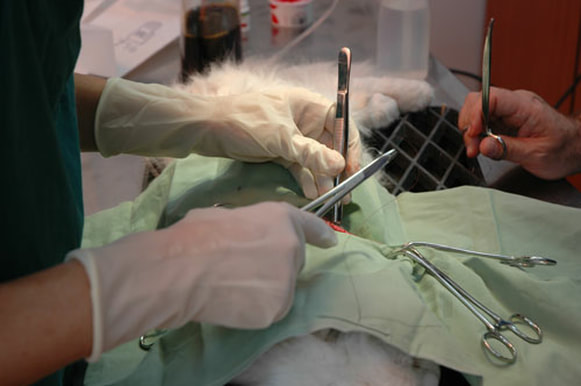General Anesthesia
For some procedures, your pet will need to be administered general anesthesia so that he or she will be unconscious and not feel pain. Many pet owners worry about their pets being administered general anesthesia. We can assure you that modern anesthesia is generally quite safe; to further lower any risk, we perform a physical examination and run blood work ahead of time to catch any underlying health issues. In addition, we follow a specific anesthetic protocol, including monitoring vital signs during the procedure, to ensure the safety of our patients.
We begin most general anesthetic procedures by administering a sedative to help the pet relax and decrease any anxiety and pain. We then administer an intravenous drug to provide complete anesthesia and place a breathing tube into the patient’s trachea (windpipe). To maintain the state of unconsciousness, we deliver a gas anesthetic in combination with oxygen through the breathing tube.
Please contact us if you have any questions or concerns about your pet receiving general anesthesia or about the procedure for which your pet is scheduled.
We begin most general anesthetic procedures by administering a sedative to help the pet relax and decrease any anxiety and pain. We then administer an intravenous drug to provide complete anesthesia and place a breathing tube into the patient’s trachea (windpipe). To maintain the state of unconsciousness, we deliver a gas anesthetic in combination with oxygen through the breathing tube.
Please contact us if you have any questions or concerns about your pet receiving general anesthesia or about the procedure for which your pet is scheduled.

